A photographer captured photos in sub-zero temperatures of Russia's ghost towns, and the gloomy images show there's beauty in sadness
Monica Humphries

- Photographer Maria Passer spent three weeks in ghost towns outside of Vorkuta, Russia.
- The once-bustling coal towns were deserted, and abandoned apartments coated in ice were left behind.
- Passer told Insider her goal was to capture both the beauty and sadness of these empty villages.
Photographer Maria Passer traveled to the icy regions of Vorkuta, Russia, to capture images of the once-bustling, now-abandoned towns.
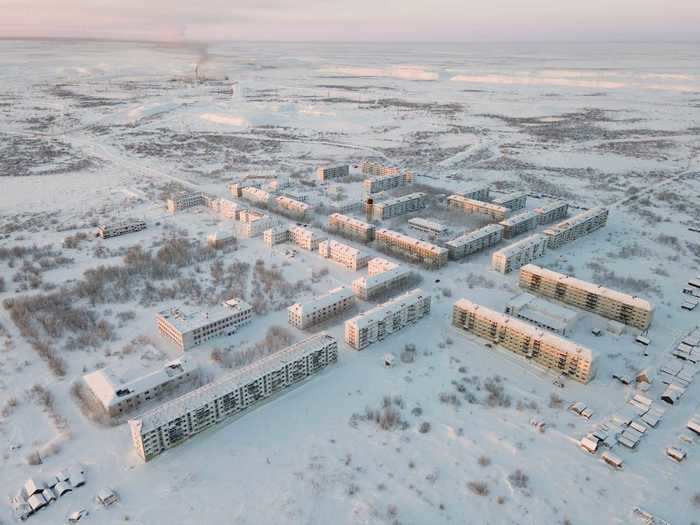
Small towns and villages surround the coal-mining city of Vorkuta, Russia, an area located north of the Arctic Circle.
Maria Passer traveled two days by train from her home in Moscow to capture the surreal destination.
Passer learned about the town from photographer and friend Lana Sator. When she saw their images, she knew she wanted to explore the location herself.
She told Insider that Vorkuta's beauty and sad history ignited her curiosity, and she aimed to capture those conflicting emotions in her photographs.
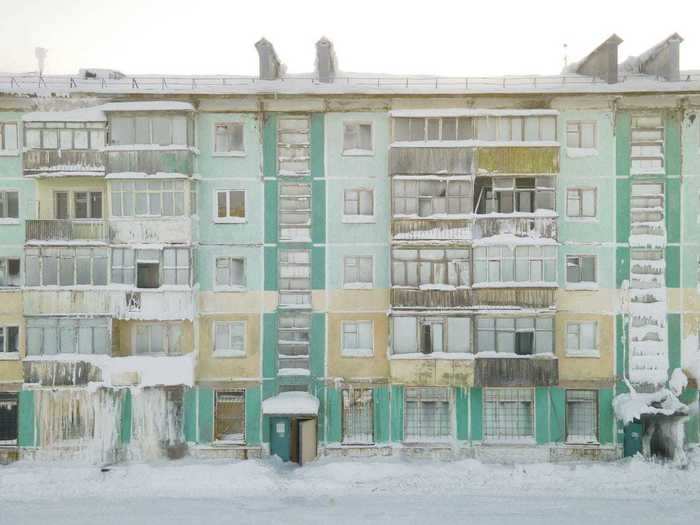
Passer said she has a deep interest in urban exploration. Vorkuta's beauty and sad history ignited Passer's interest and left her eager to photograph the villages.
"These abandoned places may be sad, dark, and gloomy places, but they are still beautiful, maybe even inspiring," she told Insider.
So Passer and two friends packed up layers, a drone, and photography equipment and set out to Russia's Arctic north.
When Passer arrived, she learned more about the city's coal-mining past. The abandoned towns were once teeming with high-paying jobs.
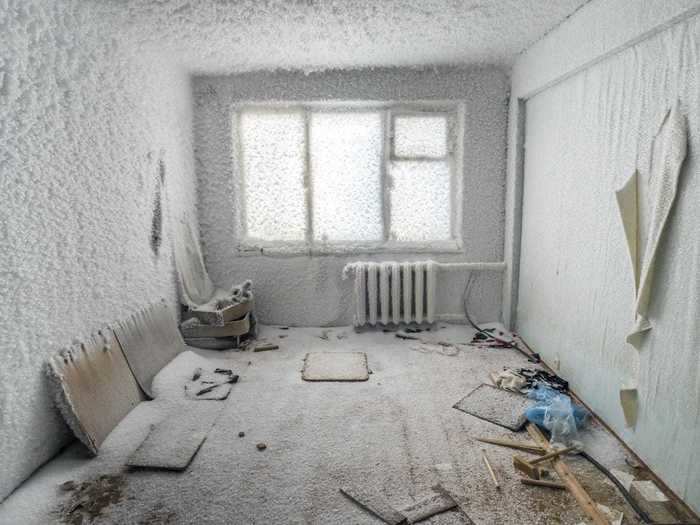
The city was founded in the 1930s, and it originated as a Gulag labor camp, where prisoners were forced to mine for coal under the reign of Joseph Stalin.
In the later years of the USSR, the area was teeming with well-paying jobs. In response, people across the country moved to Vorkuta.
With the influx of residents, towns and villages popped up to house the coal miners and their families.
When the Soviet Union collapsed, the mines closed. With few job prospects nearby, people left - leaving deserted buildings behind.
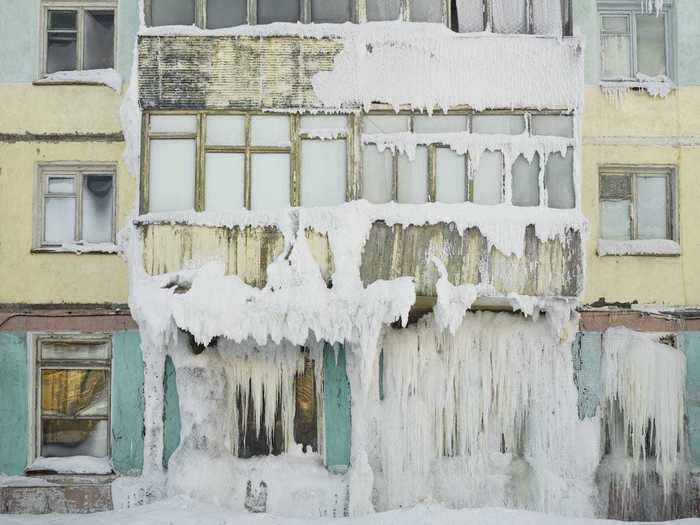
When the Soviet Union collapsed in 1991, so did many of the mines, and many Russian coal miners found themselves unemployed.
Since Vorkuta is in an isolated region of Russia, the now-jobless coal miners were forced to find new opportunities in new destinations.
Since then, 1 million people have left the Arctic zone, according to the global news site The World.
But Passer said the villages aren't completely empty. Today, there is still a handful of people who live in the towns' apartment complexes.
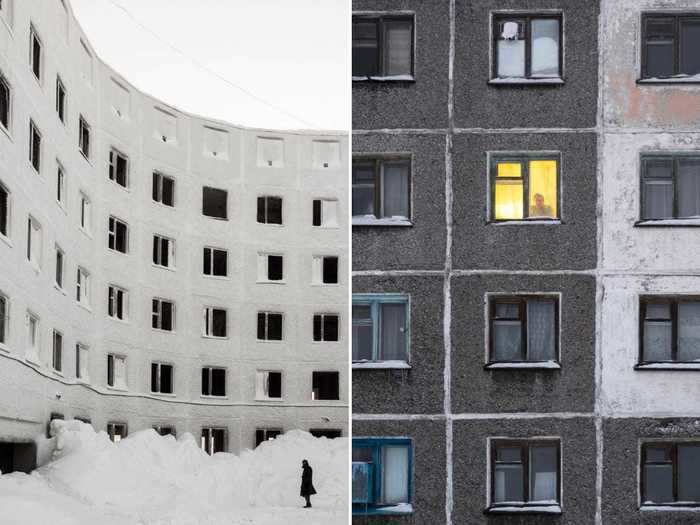
A vast majority of the towns are deserted, but a few people remain. About 100 apartments are still being used, per The World.
Those who are still located in the outside villages of Vorkuta are often there because of necessity.
Passer said many people want to leave, but their homes are unsellable, and they don't have money to relocate. So they end up staying.
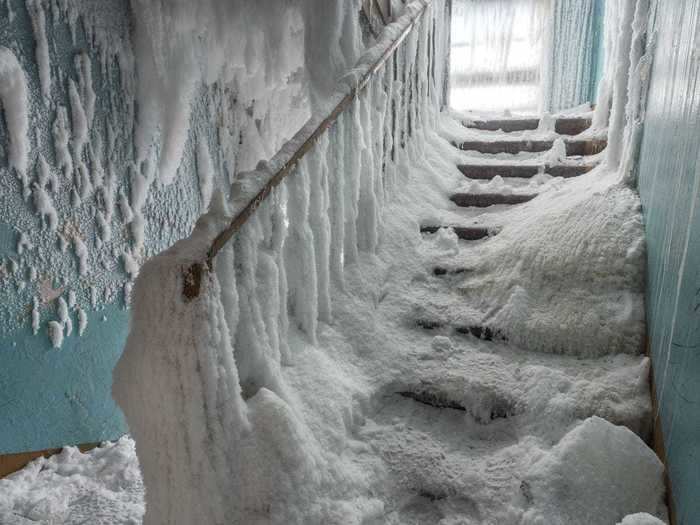
Many are waiting to be resettled to subsidized housing programs because they don't have enough money to relocate and can't sell their home.
Passer said no one wants to move to these villages, so the homes and apartments are nearly impossible to sell.
"Even in the small parts of Russia, you can't buy anything for the price you would sell your apartment for," Passer said.
For others, this is the only place they've lived, and they don't want to move.
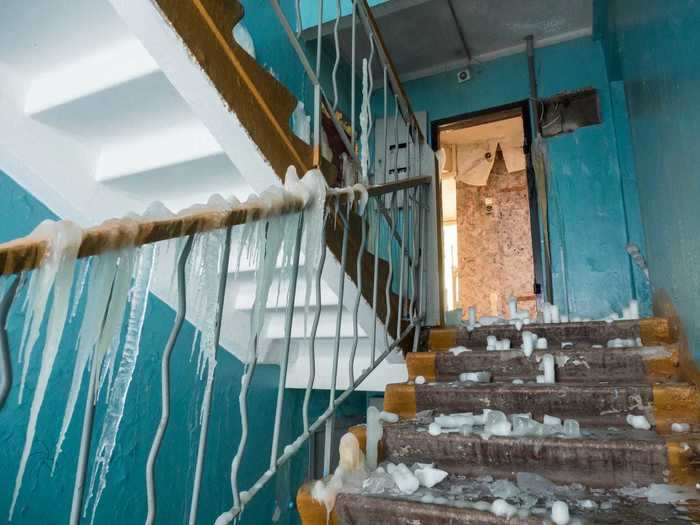
Passer said these are a few people who don't want to leave since this is their home.
Those who still live in the abandoned apartment complexes must travel by car or public transportation to the city of Vorkuta for necessities.
Here, residents can find grocery stores, restaurants, pharmacies, theaters, and shopping areas typical of a city.
Many of the families and people who abandoned the villages left behind belongings and furniture.
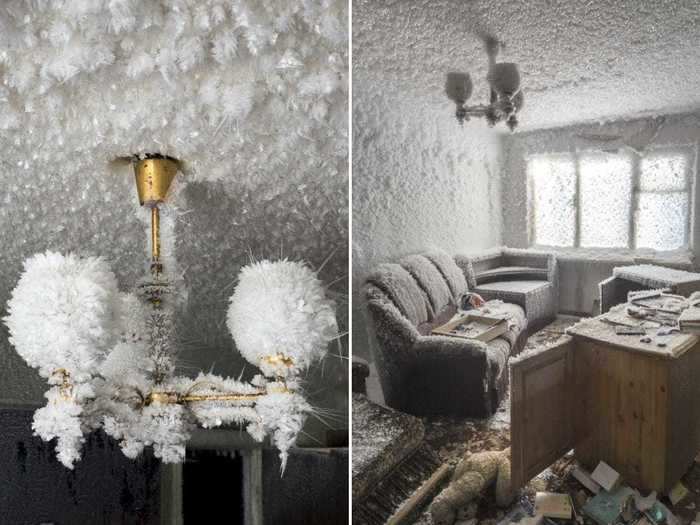
Too costly to move, people left behind furniture and belongings they no longer needed.
Passer explored these empty, abandoned apartments and found old photographs, books, furniture, and toys inside the rooms.
Over the years, ice crystals have coated every inch of the abandoned rooms.
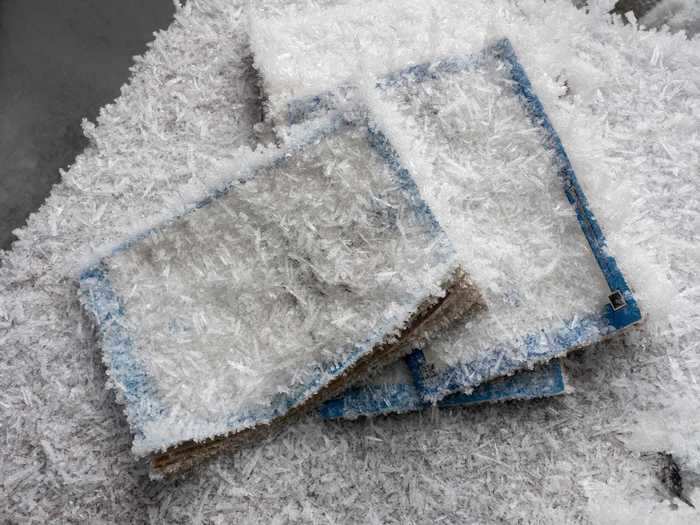
When Passer visited, temperatures in the region hovered around -38 Fahrenheit.
The freezing temperatures have left behind a thin layer of ice and snow across the complexes' stairwells, hallways, and rooms.
In some buildings, the water pipes burst, which created walls, floors, and stairwells full of ice.
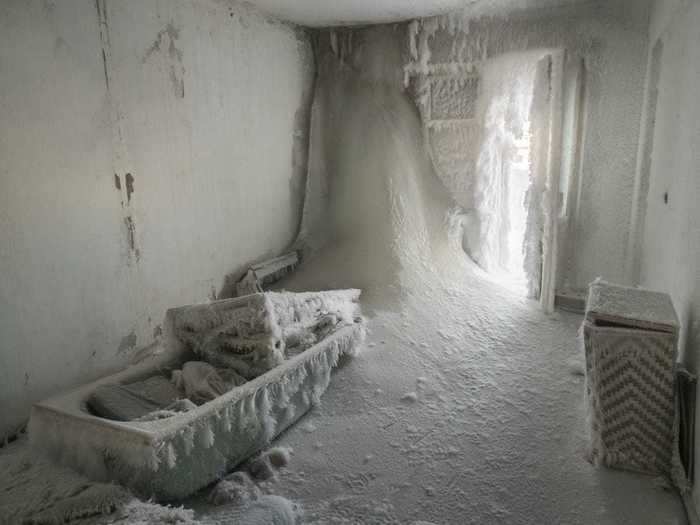
Rarely is maintenance done on these buildings, and the freezing temperatures have caused many pipes to burst, Passer said.
The result is stairwells, rooms, and hallways with mountains of ice.
Passer said photographing in freezing temperatures was a challenge. At points, her hands were too cold to press the shutter, and batteries quickly died.
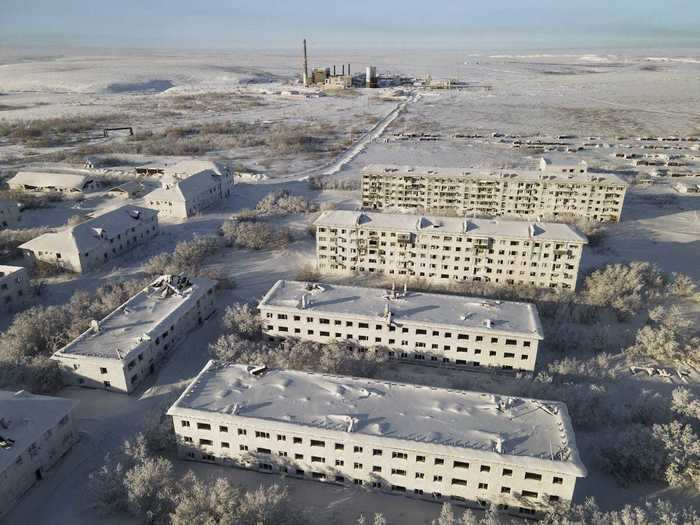
Before heading out to take images, Passer layered up in shirts, pullovers, leggings, trousers, and coats to stay warm.
Passer captured images both on the ground and from up above.
Passer said her phone and camera's batteries would die quickly, so she had to work quickly.
Walking through the abandoned buildings, Passer said she felt stunned by the location's beauty and sadness.
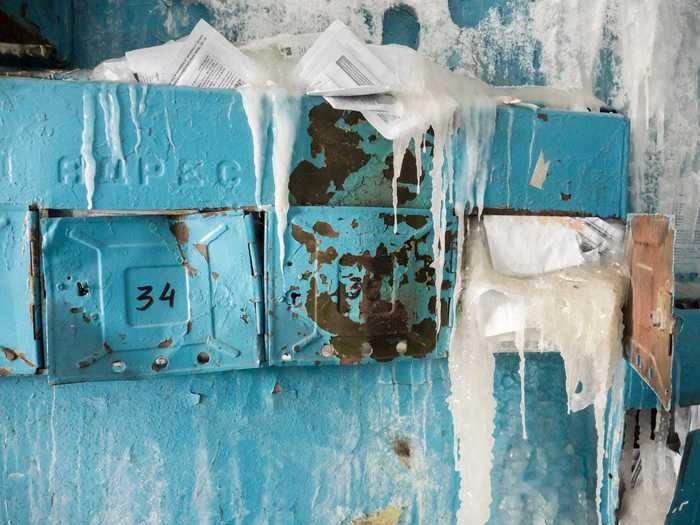
"My first feeling was like, 'Wow, this is terrible,'" she said about seeing the abandoned apartments, pictures on the wall, books, clothes, and items left behind.
"But on the other side, I thought, 'Wow, this is so amazingly beautiful.'"
She made it her goal to capture and share the location's gloomy beauty.
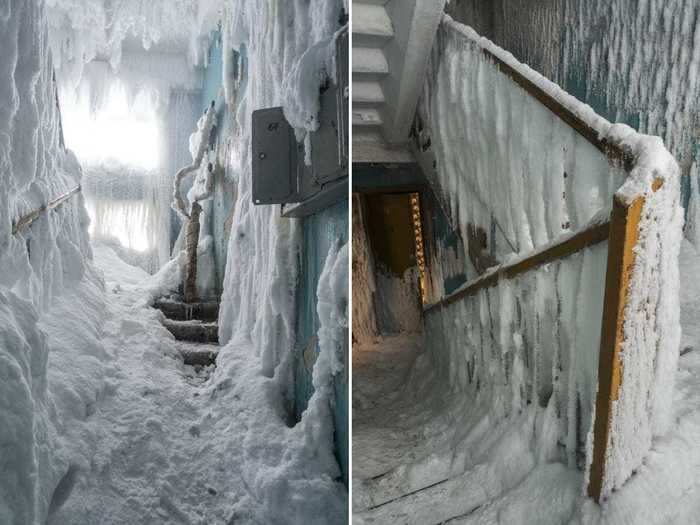
Since Passer found her love for urban exploration photography, she's visited a handful of abandoned places, including underground mines, abandoned towns, and bomb shelters.
But this was the most impressive place she's photographed, she said.
Since publishing the photographs, the images have resonated with viewers both in and outside of Russia.
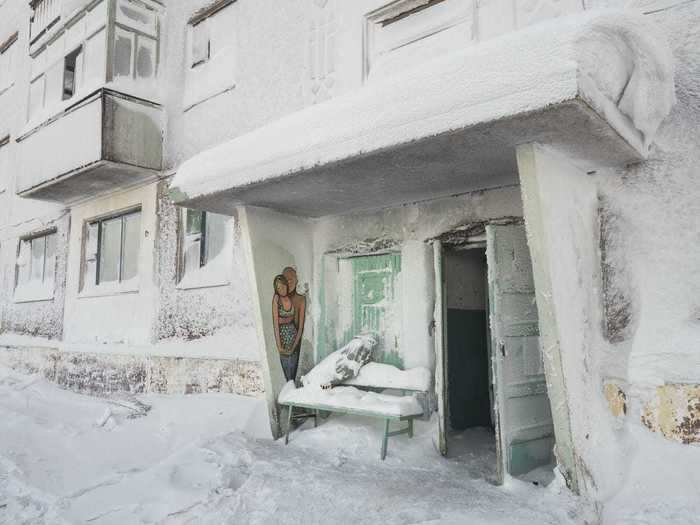
Passer said her photographs have received mixed responses.
The other day, one woman told Passer that the images helped her bond with her stepfather, who was born and raised in Vorkuta, but not everyone is happy with the attention Vorkuta is gaining.
"I know some people in Vorkuta are disappointed my pictures and pictures from my friends showed Vorkuta as a gloomy, depressive place," she said, adding that images aim to capture beauty.
Passer said she hopes viewers learn to find beauty in everything - even things that might seem sad.
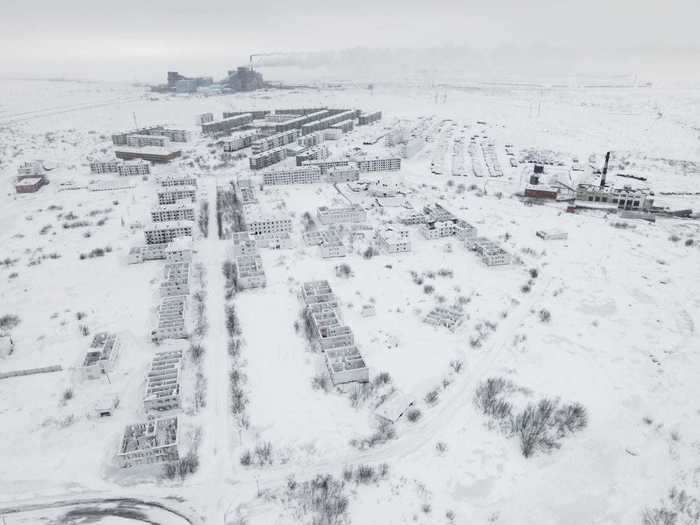
Passer said she hopes viewers learn to find beauty in everything — even things that might seem sad.
"I hope that people will see these pictures the same way when I saw these places," Passer said. "Both, 'wow, it's beautiful, and wow, it's terrible.'"
READ MORE ARTICLES ON
Popular Right Now
Popular Keywords
Advertisement